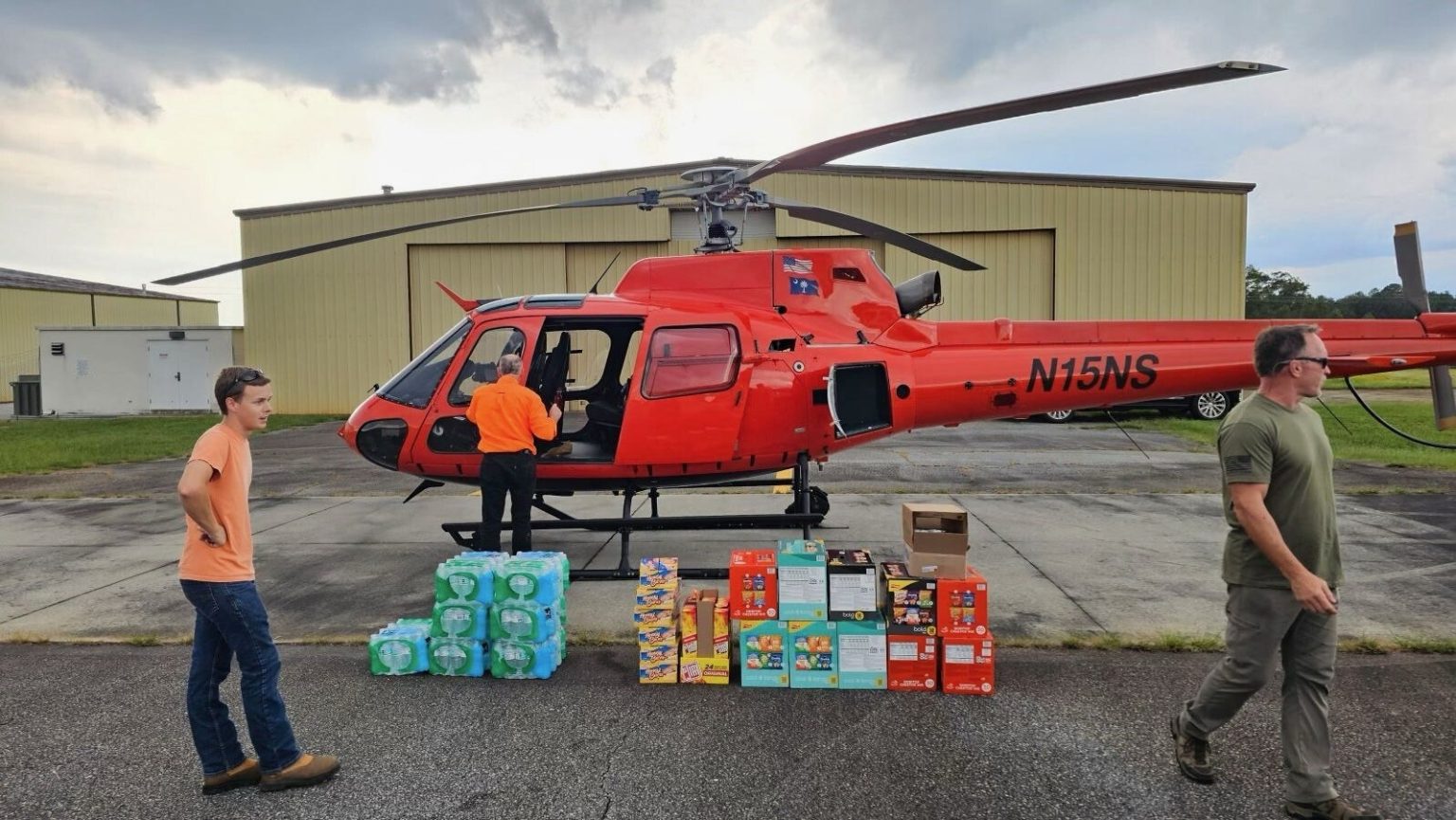In North Carolina, hurricane survivors are facing widespread devastation after Hurricane Helene, with the federal government’s response coming under criticism for lack of funds and ineffective relief efforts. Critics have drawn attention to the fact that FEMA has announced it is out of money for responding to disasters, leading to concerns about the ability to help citizens in need. Former President Trump criticized the government’s response, highlighting the disparity between aid provided to foreign countries and the meager assistance being offered to those affected by the hurricane. As a result, organizations led by individuals with backgrounds in the military and law enforcement have taken matters into their own hands to provide aid to hurricane survivors.
Aaron Negherbon, founder and CEO of Cops Direct, expressed frustration at the lack of federal assistance and the insufficient funding for FEMA. He emphasized the need for Americans to come together and support each other in times of crisis when the government falls short. Negherbon and other organizations have mobilized to provide aid to those in need, responding to calls for help from various agencies and communities impacted by the hurricane. With roads washed away and traditional paths to homes inaccessible, Negherbon and others have been flying in emergency supplies to reach residents cut off by the storm.
Ross Johnson, a former Army Green Beret, has used his piloting skills and network of pilots to deliver much-needed supplies to hurricane survivors in areas where FEMA has not been operating. Johnson and other volunteers are utilizing helicopters to reach remote areas in the mountains where traditional ground transportation is impossible. He emphasized that the efforts of these volunteers are driven by a desire to help their neighbors and make a difference for those affected by the disaster, rather than for profit or personal gain. The grassroots response to the hurricane has showcased the dedication and resourcefulness of individuals in supporting their communities during challenging times.
The federal government has faced criticism for its response to Hurricane Helene, with Homeland Security Secretary Alejandro Mayorkas warning of a funding shortfall for FEMA during the hurricane season. Lawmakers have approved a stopgap measure to replenish the agency’s Disaster Relief Fund with $20 billion to support ongoing relief efforts. Vice President Kamala Harris has pushed back against claims of inadequate assistance, characterizing the criticisms as misinformation spread by former President Trump. Despite the political debate surrounding the government’s response, individuals like Negherbon and Johnson continue to volunteer their time and resources to help hurricane survivors in North Carolina.
The selfless actions of volunteers with backgrounds in the military and law enforcement reflect a spirit of community and resilience in the face of natural disasters. These individuals are stepping in to fill the gaps left by government agencies, using their skills and resources to provide critical aid to those in need. By mobilizing helicopters and other assets, they are able to reach isolated communities and deliver emergency supplies where traditional methods of assistance have fallen short. The grassroots efforts of these volunteers demonstrate the power of community-driven initiatives in response to disasters, showcasing the importance of collective action and compassion in times of crisis.
As relief efforts continue in North Carolina, the dedication and resourcefulness of volunteers like Negherbon and Johnson serve as a reminder of the importance of community support during times of crisis. Despite challenges and limitations faced by government agencies, these individuals have taken it upon themselves to provide aid and support to their neighbors in need. Their efforts highlight the resilience and compassion of Americans, showing that communities can come together to overcome adversity and make a difference in the lives of those affected by natural disasters.


